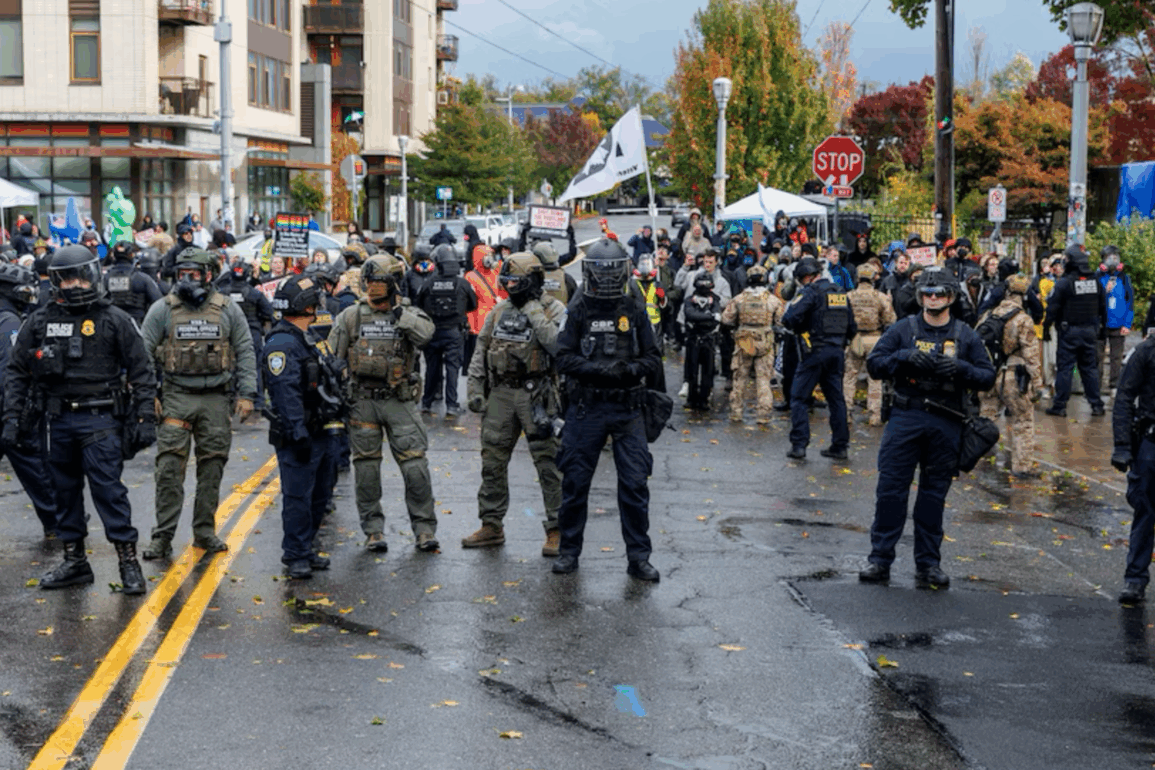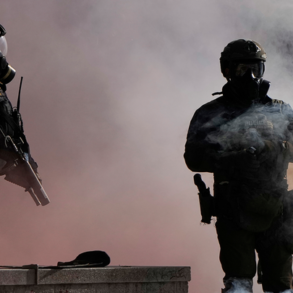A federal judge appointed by former President Donald Trump has issued a permanent injunction blocking his administration from deploying National Guard troops to Portland, Oregon, amid ongoing protests outside a U.S. Immigration and Customs Enforcement (ICE) facility. U.S. District Judge Karin Immergut ruled on November 7, 2025, that President Trump lacked legal authority to federalize the Guard, marking a significant setback for the administration’s efforts to use military forces in domestic cities.
The Core of the Ruling
In a detailed 106-page decision, Judge Immergut concluded that the conditions in Portland did not meet the strict federal requirements for deploying the National Guard. Federal law permits the president to take control of state Guard units only in cases of rebellion, imminent danger of rebellion, or when regular forces cannot enforce U.S. laws. Immergut acknowledged that some violent protests occurred in mid-June 2025 but emphasized that local law enforcement had managed the situation effectively since then.
“Since that brief span of a few days in June, the protests outside the Portland ICE facility have been predominantly peaceful, with only isolated and sporadic instances of relatively low-level violence, largely between protesters and counter-protesters,” she wrote. Even granting “great deference” to the president’s judgment, Immergut found no lawful basis for the deployment. She also cited the 10th Amendment, which reserves powers not given to the federal government to the states, arguing that the move violated state sovereignty.
The injunction took effect immediately and is the fourth time Immergut has halted Trump’s plans for Portland. It followed a three-day trial where the city of Portland, along with Oregon and California, argued that the executive branch overstepped its constitutional bounds and that local police could handle any issues.
Background on the Dispute
The legal battle began in late September 2025 after Trump announced on social media that he would send “all necessary Troops” to protect what he called a “war-ravaged” and “under siege” Portland. Protests against Trump’s immigration policies had been occurring nightly outside the ICE building since June, with demonstrators criticizing deportations and border enforcement.
The Trump administration, represented by the Department of Justice (DOJ), insisted the troops were needed to safeguard federal personnel and property. DOJ attorneys pointed to arrests of protesters, disruptions to ICE operations, and incidents like spray-painting threats, blockading entrances, and online doxxing of officers. “President Trump’s federalization decision is consistent with law,” argued DOJ lawyer Eric Hamilton during the trial. “The president’s judgment is not subject to judicial review.”
They claimed federal forces were overwhelmed, initially telling the court that 115 officers from the Federal Protective Service (FPS)—nearly a quarter of the agency’s capacity—had been redirected to Portland. However, on the eve of trial, the administration corrected this to just 86 officers, with plaintiffs noting that this was a tiny fraction of FPS’s 1,300+ employees and that no more than 31 were in Portland at once.
Plaintiffs countered that protests had been mostly peaceful after June, with minimal interference to federal operations. “The occasional interference to federal officers has been minimal, and there is no evidence that these small-scale protests have significantly impeded the execution of any immigration laws,” Immergut agreed in her ruling.
A Timeline of Court Actions and Deployments
The case has seen rapid developments and some controversy:
- September 28, 2025: Portland, Oregon, and California sue to block the deployment.
- October 3: Immergut hears arguments for a temporary restraining order (TRO) against federalizing 200 Oregon Guard members.
- October 4: Despite the ongoing hearing, a small group of Oregon Guard troops is briefly sent to the ICE building. Immergut issues a 31-page TRO blocking Oregon Guard federalization; the nine troops on site stay until midnight.
- October 5: The administration sends 200 federalized California Guard members to Portland instead, then calls up hundreds from Texas. Immergut holds an emergency hearing and issues a broader TRO blocking any out-of-state Guard deployments.
- Late October: A three-day trial begins.
- November 7: Permanent injunction issued.
Immergut expressed concern over the administration’s compliance, noting she was “deeply troubled” that Oregon troops remained at the facility after her first TRO. She questioned why the DOJ could quickly coordinate California troops but claimed it needed more time to relay orders to the nine Oregon Guardsmen already there.
Reactions from Both Sides
Democratic leaders hailed the decision as a check on executive power. Oregon Attorney General Dan Rayfield stated, “No president is above the law… There’s a reason we don’t normalize the use of the military in our cities.” Portland Mayor Keith Wilson added, “The number of federal troops needed in our city is zero, and today’s court ruling vindicates Portland’s position.”
California Attorney General Rob Bonta, whose state’s Guard was involved, called it “a win for the rule of law” and prepared for appeals. Oregon Governor Tina Kotek demanded all troops be sent home, noting Oregon Guard members had been away from families for 38 days.
The White House did not immediately comment, but the DOJ has already appealed earlier orders to the 9th U.S. Circuit Court of Appeals. Fox News legal analyst Gregg Jarrett described the ruling as a blow to the administration, while the DOJ argues it interferes with the president’s role as commander in chief and endangers federal assets.
Broader Implications
This is the first case since Trump’s inauguration to reach trial over the legality of federalizing the Guard domestically. Similar challenges are underway in cities like Los Angeles, Chicago, and California, where temporary blocks remain in place. Immergut clarified that her ruling does not bar future deployments if conditions truly warrant them—just that Portland’s situation does not.
Legal experts predict an appeal to a three-judge 9th Circuit panel. University of Washington law professor Jeff Feldman praised Immergut for fast-tracking the case, saying it sets an important precedent on presidential military authority in civilian areas.
As protests continue peacefully outside the Portland ICE facility, this ruling underscores ongoing tensions between federal power and state rights in Trump’s second term. The administration’s next moves could shape how military forces are used in U.S. cities for years to come.



